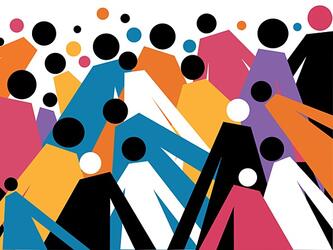Game Theory
Data security is an increasing problem in the digital age, but a 2014 report by Cisco indicated that a shortage of ‘security talent’ – people with up-to-date data-security skills – meant the industry, worldwide, had an estimated one million fewer security professionals than it needed.
In 2016, a survey by Isaca (formerly the Information Systems Audit and Control Association) revealed that 45% of global IT professionals were hiring more cybersecurity professionals this year. Almost all ( 94%) of those hiring said they thought it would be difficult to find skilled candidates.
This dearth of skills means companies are having to be more flexible in addressing security challenges. Cybersecurity firm Digital Guardian, for example, has proposed a solution – DG Data Defender. This applies game-playing elements to non-gaming situations – to enable ‘average’ (that is, non-data-skilled) employees to act as security guardians. Employees are awarded badges for completing certain tasks; for example, for sending their first email that doesn’t trigger a policy violation. After earning a number of badges for other secure practices, the employee is rewarded with a physical prize, such as a gift card.
“Typical employees view security as a major inconvenience – whether it’s complex passwords, two-factor authentication, data loss-prevention technology or mandatory security updates,” says Digital Guardian’s CMO, Connie Stack. “The negative attitude is compounded when every interaction they have with the IT security team is a hand slap. But it doesn’t have to be this way – especially if you leverage game mechanics in your security programme. If you turn a hand slap for bad behaviour into a reward for good behaviour, it can really change the dynamics. This is why we created DG Data Defender – to add a layer of fun to protecting sensitive information, such as credit card numbers or social security numbers.”
Stack believes that as millennials – who grew up gaming, are adept at understanding gaming mechanics and quick to adopt its techniques – are now entering the workforce, “corporations would be wise to start incorporating gamification into as many aspects of employers’ jobs as possible”.
Another example of gamification being used to empower ‘unskilled’ people – and one that offers guidance on the extent to which it can be useful – is Cancer Research UK. Since 2012, the charity has launched citizen science projects based around mobile phone apps that allowed members of the public to take part in its research.
Play to Cure: Genes in Space – one of the first apps – used a fictional mission of collecting a substance called Element Alpha, which represented genetic data that might underpin certain types of breast cancer. Players were instructed to map a space route through the densest areas of Element Alpha and to collect as much of the substance as possible. They could also shoot asteroids and upgrade their ship.
The app was downloaded 400,000 times, and the project enabled the analysis of 5,000,000 nuggets of data (the entire genomes of 1,980 patients), each checked 50 times for accuracy. However, the creators found that the gaming element was detrimental to accuracy.
To address this, a subsequent game, The Impossible Line, gave users the chance to spot genetic faults in breast cancer data using patterns of specks that represented those faults. Players mapped faults by drawing lines through them with their finger. This approach offered increased accuracy; researchers found that the quality of the analysis was improved by keeping it separate from gameplay.

We hope you enjoyed this article.
Research Live is published by MRS.
The Market Research Society (MRS) exists to promote and protect the research sector, showcasing how research delivers impact for businesses and government.
Members of MRS enjoy many benefits including tailoured policy guidance, discounts on training and conferences, and access to member-only content.
For example, there's an archive of winning case studies from over a decade of MRS Awards.
Find out more about the benefits of joining MRS here.













1 Comment
Harrison
9 years ago
This is an interesting article, it may have been easier to understand if we could see images/videos from the game?
Like Reply Report